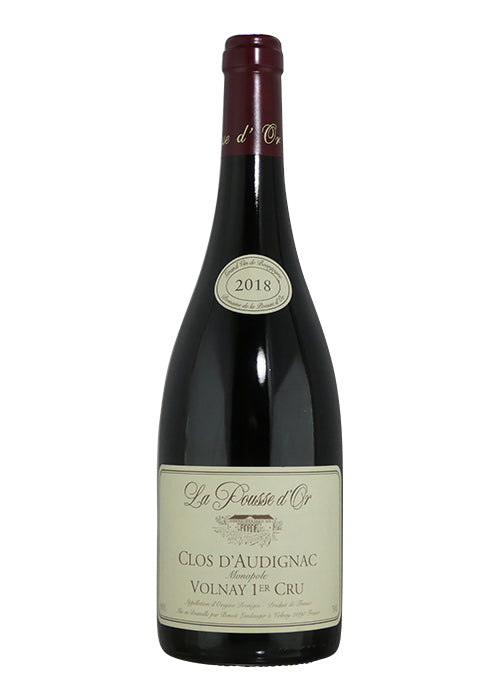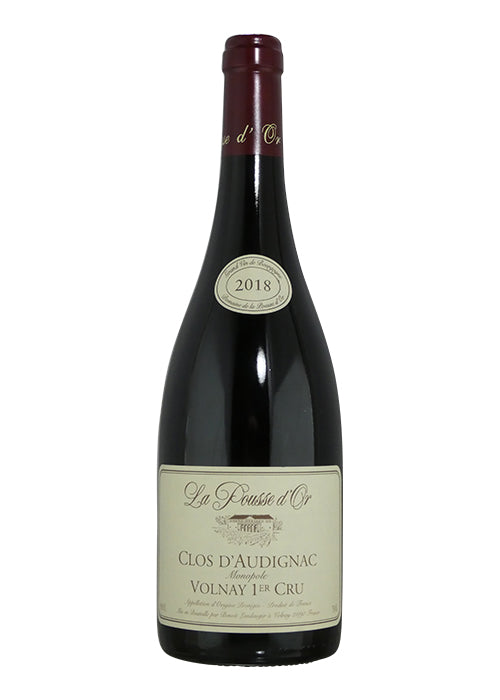1
/
of
1
Domaine de la Pousse d'Or Volnay 1er cru Clos D'Audignac - 2018 (750ml)
Domaine de la Pousse d'Or Volnay 1er cru Clos D'Audignac - 2018 (750ml)
Regular price
$99.99
Sale price
$99.99
Regular price
$119.99
Unit price
/
per
Share :

- varietal
- Region
- Sub - Region
- Type
- Reviews
Its adaptability to different soils and climates, and malleability in the wine room make Chardonnay one of the most popular and ubiquitous grapes. Responsible for some of the world’s most thrilling white wines wines including Champagne, it is in its homeland of Burgundy with villages such as Chablis, Meursault and Puligny-Montrachet that producers craft arguably some of the world’s finest wines. Chardonnay is also synonymous with California, where it can display riper, tropical fruit flavors, rather than the more restrained stone fruit and steely, mineral qualities often associated with its Old World and cool climate counterparts. While there are terrific fresh and vibrant Chardonnays made solely using stainless steel, the grape also knits terrifically well with oak, lending greater depth and weight in the form of a nutty, toasty and somtimes buttery component.
Two hundred miles south east of Paris lies the famous and historic wine region, known in French as Bourgogne. The Cote d'Or, the heartland of the region, consists of two distinct sub-regions split on either side of the town of Beaune.The Côte de Nuits to the north, includes the famous villages of Vosne-Romanee, Gevrey-Chambertin, and Nuits-Saint-Georges and are known primarily for making red wine from Pinot Noir.Although The Côte de Beaune to the south still makes some magnificent reds (see Volnay and Pommard), white wine made from Chardonnay is the main focus. The most famous villages are Puligny-Montrachet and Meursault. Burgundy has three other important regions. The village of Chablis (exclusively Chardonnay) encompassing the region's most northerly vineyards. The Côte Chalonnaise and Mâconnais to south are quantitatively speaking more important. Agriculture is more diverse with a significant portion of the land devoted to livestock and arable farming.
Beaune is the center of Burgundy’s wine production, where most of the region’s negociants, such as Champy, Joseph Drouhin, Louis Jadot, and Louis Latour, were founded and continue to operate. The town’s name is also given to the Cote de Beaune district, which, with the Cote de Nuits, completes the whole of the Cote d’Or. Its wines are mainly red, and although more varied, are somewhere in the middle between Pommard’s richness and Volnay’s fragrant and elegant qualities. With a whopping forty-four premier cru vineyards, nearly three quarters of the total vineyard area is premier cru. While the finest vineyards are said to be those northwest of the town, climbing up the hill of Les Mondes Rondes, such as Les Greves and adjoining Les Bressandes. Clos du Roi and Blanche Fleurs in the northeast also perform consistently, as do the likes of Clos-des-Mouche bordering Pommard at the opposite end. In fact, of the little white wine made (about 6%) Drouhin’s Clos-des-Mouche is one of the most expressive and age-worthy.
White wine is a wine whose color can be pale-yellow, yellow-green, and yellow-gold colored. The wine is produced from a variety of grape varieties. The flavor and color comes from the juice of the grape and sometimes the skin of the grape as well. Interestingly, not all white wine comes from white grapes. Some select red grapes are used as in Champagne.


